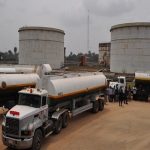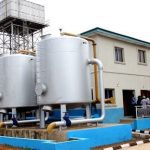According to the latest Capital Importation data published by the National Bureau of Statistics, foreign investments in Nigeria’s manufacturing sector declined by $326 million (54%) to $279.5 million in the third quarter of 2023, down from $605 million in the second quarter.
According to the report’s further research, despite the large decline, the production sector had the biggest capital importation in Q3 2023.
The finance industry came in second, bringing in $127.9 million in capital imports during the period under review.
Foreign investments in Nigeria have recently been declining, according to NBS data, with investments falling by 35% from $392.5m in the fourth quarter of 2022 to $256m in the first quarter of 2023.
The Manufacturers Association of Nigeria expressed concern that government policies have aided capital flight in the industry.
MAN, in various MCCI reports, had warned that the increasingly harsh business environment, occasioned by high energy costs, lack of access to funding, multiple taxation, among others, had scaled down investments into the sector.
The significant drop in foreign investments in the third quarter of the year was linked to the exit of some multinationals such as GlaxoSmithKline (which exited Nigeria in August) and Unilever, which winded down operations on its home and skin care categories in April.
In the fourth quarter of 2023, more multinational manufacturers such as Sanofi-Aventis and Procter & Gamble also winded down operations in Nigeria.
According to the latest Capital Importation data published by the National Bureau of Statistics, foreign investments in Nigeria’s manufacturing sector declined by $326 million (54%) to $279.5 million in the third quarter of 2023, down from $605 million in the second quarter.
According to the report’s further research, despite the large decline, the production sector had the biggest capital importation in Q3 2023.
The finance industry came in second, bringing in $127.9 million in capital imports during the period under review.
Foreign investments in Nigeria have recently been declining, according to NBS data, with investments falling by 35% from $392.5m in the fourth quarter of 2022 to $256m in the first quarter of 2023.
The Manufacturers Association of Nigeria expressed concern that government policies have aided capital flight in the industry.
MAN, in various MCCI reports, had warned that the increasingly harsh business environment, occasioned by high energy costs, lack of access to funding, multiple taxation, among others, had scaled down investments into the sector.
The significant drop in foreign investments in the third quarter of the year was linked to the exit of some multinationals such as GlaxoSmithKline (which exited Nigeria in August) and Unilever, which winded down operations on its home and skin care categories in April.
In the fourth quarter of 2023, more multinational manufacturers such as Sanofi-Aventis and Procter & Gamble also winded down operations in Nigeria.
According to the latest Capital Importation data published by the National Bureau of Statistics, foreign investments in Nigeria’s manufacturing sector declined by $326 million (54%) to $279.5 million in the third quarter of 2023, down from $605 million in the second quarter.
According to the report’s further research, despite the large decline, the production sector had the biggest capital importation in Q3 2023.
The finance industry came in second, bringing in $127.9 million in capital imports during the period under review.
Foreign investments in Nigeria have recently been declining, according to NBS data, with investments falling by 35% from $392.5m in the fourth quarter of 2022 to $256m in the first quarter of 2023.
The Manufacturers Association of Nigeria expressed concern that government policies have aided capital flight in the industry.
MAN, in various MCCI reports, had warned that the increasingly harsh business environment, occasioned by high energy costs, lack of access to funding, multiple taxation, among others, had scaled down investments into the sector.
The significant drop in foreign investments in the third quarter of the year was linked to the exit of some multinationals such as GlaxoSmithKline (which exited Nigeria in August) and Unilever, which winded down operations on its home and skin care categories in April.
In the fourth quarter of 2023, more multinational manufacturers such as Sanofi-Aventis and Procter & Gamble also winded down operations in Nigeria.
According to the latest Capital Importation data published by the National Bureau of Statistics, foreign investments in Nigeria’s manufacturing sector declined by $326 million (54%) to $279.5 million in the third quarter of 2023, down from $605 million in the second quarter.
According to the report’s further research, despite the large decline, the production sector had the biggest capital importation in Q3 2023.
The finance industry came in second, bringing in $127.9 million in capital imports during the period under review.
Foreign investments in Nigeria have recently been declining, according to NBS data, with investments falling by 35% from $392.5m in the fourth quarter of 2022 to $256m in the first quarter of 2023.
The Manufacturers Association of Nigeria expressed concern that government policies have aided capital flight in the industry.
MAN, in various MCCI reports, had warned that the increasingly harsh business environment, occasioned by high energy costs, lack of access to funding, multiple taxation, among others, had scaled down investments into the sector.
The significant drop in foreign investments in the third quarter of the year was linked to the exit of some multinationals such as GlaxoSmithKline (which exited Nigeria in August) and Unilever, which winded down operations on its home and skin care categories in April.
In the fourth quarter of 2023, more multinational manufacturers such as Sanofi-Aventis and Procter & Gamble also winded down operations in Nigeria.
According to the latest Capital Importation data published by the National Bureau of Statistics, foreign investments in Nigeria’s manufacturing sector declined by $326 million (54%) to $279.5 million in the third quarter of 2023, down from $605 million in the second quarter.
According to the report’s further research, despite the large decline, the production sector had the biggest capital importation in Q3 2023.
The finance industry came in second, bringing in $127.9 million in capital imports during the period under review.
Foreign investments in Nigeria have recently been declining, according to NBS data, with investments falling by 35% from $392.5m in the fourth quarter of 2022 to $256m in the first quarter of 2023.
The Manufacturers Association of Nigeria expressed concern that government policies have aided capital flight in the industry.
MAN, in various MCCI reports, had warned that the increasingly harsh business environment, occasioned by high energy costs, lack of access to funding, multiple taxation, among others, had scaled down investments into the sector.
The significant drop in foreign investments in the third quarter of the year was linked to the exit of some multinationals such as GlaxoSmithKline (which exited Nigeria in August) and Unilever, which winded down operations on its home and skin care categories in April.
In the fourth quarter of 2023, more multinational manufacturers such as Sanofi-Aventis and Procter & Gamble also winded down operations in Nigeria.
According to the latest Capital Importation data published by the National Bureau of Statistics, foreign investments in Nigeria’s manufacturing sector declined by $326 million (54%) to $279.5 million in the third quarter of 2023, down from $605 million in the second quarter.
According to the report’s further research, despite the large decline, the production sector had the biggest capital importation in Q3 2023.
The finance industry came in second, bringing in $127.9 million in capital imports during the period under review.
Foreign investments in Nigeria have recently been declining, according to NBS data, with investments falling by 35% from $392.5m in the fourth quarter of 2022 to $256m in the first quarter of 2023.
The Manufacturers Association of Nigeria expressed concern that government policies have aided capital flight in the industry.
MAN, in various MCCI reports, had warned that the increasingly harsh business environment, occasioned by high energy costs, lack of access to funding, multiple taxation, among others, had scaled down investments into the sector.
The significant drop in foreign investments in the third quarter of the year was linked to the exit of some multinationals such as GlaxoSmithKline (which exited Nigeria in August) and Unilever, which winded down operations on its home and skin care categories in April.
In the fourth quarter of 2023, more multinational manufacturers such as Sanofi-Aventis and Procter & Gamble also winded down operations in Nigeria.
According to the latest Capital Importation data published by the National Bureau of Statistics, foreign investments in Nigeria’s manufacturing sector declined by $326 million (54%) to $279.5 million in the third quarter of 2023, down from $605 million in the second quarter.
According to the report’s further research, despite the large decline, the production sector had the biggest capital importation in Q3 2023.
The finance industry came in second, bringing in $127.9 million in capital imports during the period under review.
Foreign investments in Nigeria have recently been declining, according to NBS data, with investments falling by 35% from $392.5m in the fourth quarter of 2022 to $256m in the first quarter of 2023.
The Manufacturers Association of Nigeria expressed concern that government policies have aided capital flight in the industry.
MAN, in various MCCI reports, had warned that the increasingly harsh business environment, occasioned by high energy costs, lack of access to funding, multiple taxation, among others, had scaled down investments into the sector.
The significant drop in foreign investments in the third quarter of the year was linked to the exit of some multinationals such as GlaxoSmithKline (which exited Nigeria in August) and Unilever, which winded down operations on its home and skin care categories in April.
In the fourth quarter of 2023, more multinational manufacturers such as Sanofi-Aventis and Procter & Gamble also winded down operations in Nigeria.
According to the latest Capital Importation data published by the National Bureau of Statistics, foreign investments in Nigeria’s manufacturing sector declined by $326 million (54%) to $279.5 million in the third quarter of 2023, down from $605 million in the second quarter.
According to the report’s further research, despite the large decline, the production sector had the biggest capital importation in Q3 2023.
The finance industry came in second, bringing in $127.9 million in capital imports during the period under review.
Foreign investments in Nigeria have recently been declining, according to NBS data, with investments falling by 35% from $392.5m in the fourth quarter of 2022 to $256m in the first quarter of 2023.
The Manufacturers Association of Nigeria expressed concern that government policies have aided capital flight in the industry.
MAN, in various MCCI reports, had warned that the increasingly harsh business environment, occasioned by high energy costs, lack of access to funding, multiple taxation, among others, had scaled down investments into the sector.
The significant drop in foreign investments in the third quarter of the year was linked to the exit of some multinationals such as GlaxoSmithKline (which exited Nigeria in August) and Unilever, which winded down operations on its home and skin care categories in April.
In the fourth quarter of 2023, more multinational manufacturers such as Sanofi-Aventis and Procter & Gamble also winded down operations in Nigeria.














